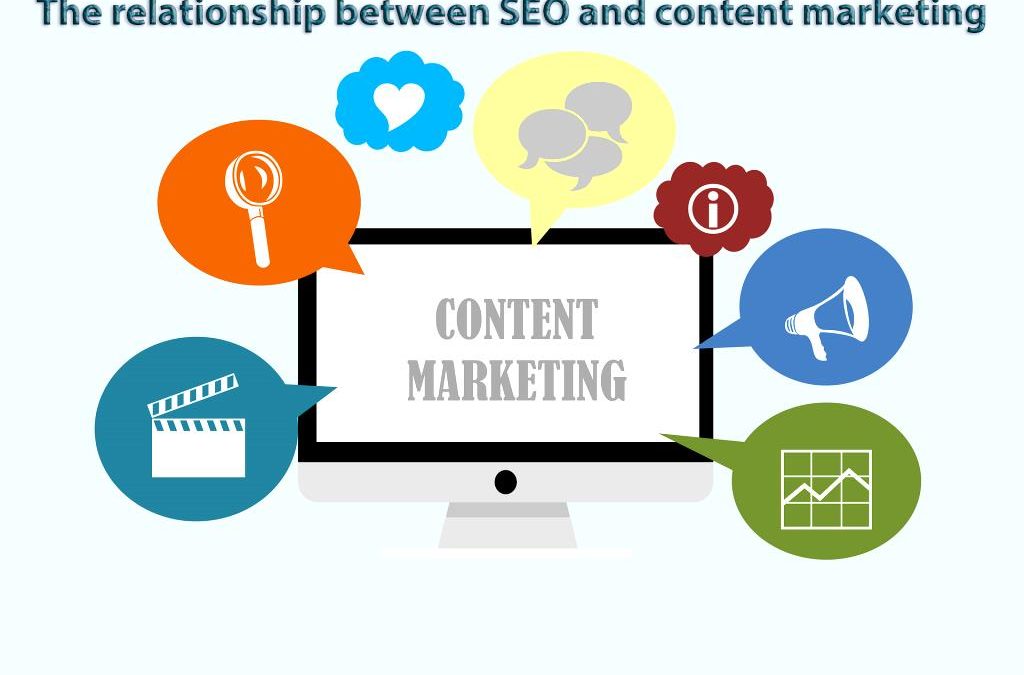Content Marketing & SEO
In order to reach customers online, two essential digital marketing concepts that can be combined are SEO and content marketing. SEO, which stands for “Search Engine Optimization,” is the process of employing strategies to make websites rank higher in search engine results. The goal of content marketing is to give prospective clients useful, insightful information. In order to engage potential customers, content can take many forms, such as blog posts, videos, infographics, social media campaigns, and others.
Simple rules apply to SEO and content marketing: the higher the caliber of content on your blog or website, the higher it will rank on search engine results pages. This implies that you can give your company a stronger online presence by producing excellent content and optimizing it using keyword research and other strategies. Additionally, content marketing improves search engine rankings because it gradually forges connections with prospective clients and fosters confidence in the messaging of your business.
Instead of depending just on one strategy, businesses can reach a wider audience by combining high-quality content marketing with SEO tactics. Companies can develop a comprehensive approach to digital marketing that will benefit their company by combining the two strategies.

Advantages Of Content Marketing & SEO
Businesses can effectively reach their target customer base by combining SEO and content marketing. Combining these two tactics can help businesses become more visible online, cultivate relationships with potential clients, and learn important information about their target market. The following are some main advantages of combining SEO with content marketing:
Enhanced Visibility: You can get more traffic and become more visible in the online marketplace by optimizing the content of your website for higher search engine rankings. Additionally, you can raise your overall search engine ranking by producing high-quality content that is keyword- and SEO-optimized.
Engage Customers: By offering insightful information about goods or services, content marketing fosters relationships with prospective clients. Customers are more likely to come back for more information and make purchases from you when they engage in this way.
Develop Insights: You can learn a lot about what appeals to your audience by monitoring how users engage with your content on different websites, blogs, social media platforms, and search engines. This enables companies to have a deeper understanding of their clientele and adjust their digital marketing approach accordingly.
These advantages show why, in today’s cutthroat digital environment, companies must coordinate their use of both SEO and content marketing to optimize their reach and efficacy.
The success of any digital marketing strategy depends on the interaction between SEO (Search Engine Optimization) and content marketing. These two fields of study are related to one another and enhance one another in various ways:
Content Creation: Producing interesting, educational, and useful content, including blog entries, articles, videos, infographics, and more, is a key component of content marketing. Content creation is a crucial component of both SEO and web page optimization, as SEO depends on it to optimize websites and web pages for search engines.
Keyword Optimization: Keywords play a major role in SEO. To aid search engines in comprehending the topic of their content, content marketers should find and use relevant keywords. The content’s search visibility is improved by thorough keyword research and integration.
Relevance and Quality: Producing pertinent and high-quality content is a top priority for both SEO and content marketing. Informational, well-organized, and audience-beneficial content has a higher chance of ranking highly in search results. Well-written content helps SEO because search engines prefer it.
User Engagement: By keeping visitors on a website longer, engaging content can lower bounce rates and lengthen dwell times. These metrics for measuring user engagement are crucial SEO signals. In order to produce content that piques and holds users’ attention, content marketing is crucial.
Updates and New Content: New and updated content is beneficial for content marketing as well as SEO. Websites with frequent content updates are valued by search engine algorithms. Keeping content up to date and relevant while adhering to SEO best practices is a common component of content marketing.
Data and Analytics: To gauge success and modify tactics, content marketing and SEO both rely on data and analytics. It is possible to optimize both disciplines for better outcomes by keeping an eye on metrics like traffic, conversions, bounce rates, and rankings.
To put it simply, SEO and content marketing are complementary tactics that increase a website’s visibility, draw in a specific audience, and strengthen its online presence. Businesses can improve their search engine rankings and increase organic traffic to their websites by fusing the advantages of content marketing with the tactical and technical facets of SEO.
Conclusion
Two crucial elements of a successful online presence are search engine optimization and content marketing. When utilized in tandem, they can help improve search engine rankings and website visibility. Keeping abreast of the most recent developments in both domains is essential to maintaining the relevance and freshness of your content. You can also make well-informed decisions about where to allocate your resources by monitoring the effectiveness of your SEO and content marketing campaigns.
